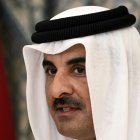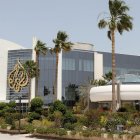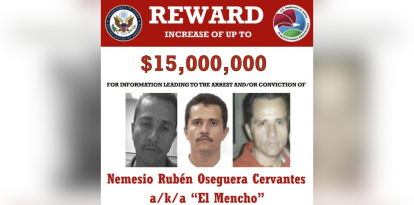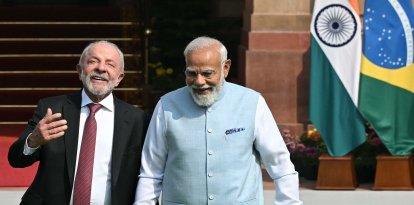Qatar: A strategic ally or a risk to US sovereignty?
At first glance, Qatar appears to be a key ally of the United States. However, its relationship with terrorist groups and its efforts to promote an anti-Israeli and anti-Western narrative raise serious doubts about its role as a reliable partner.
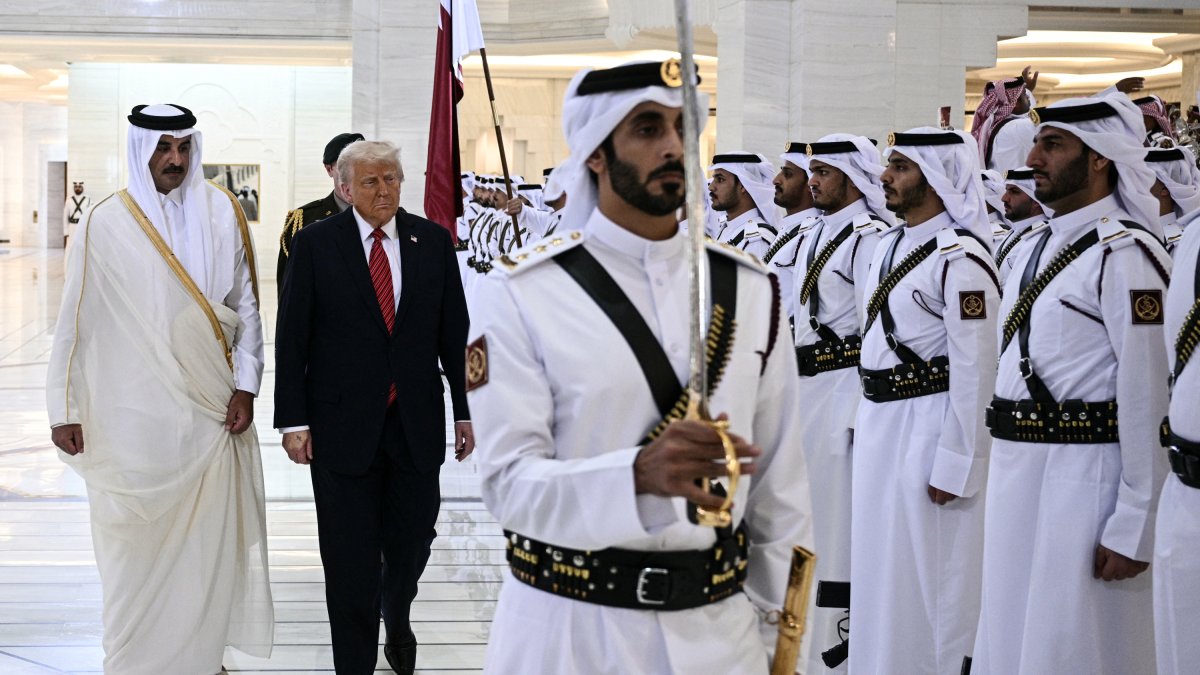
Emir al-Thani hosts Donald Trump in Doha.
U.S. President Donald Trump traveled to Qatar to visit the Al Udeid air base, the largest U.S. military facility in the region, and meet with the ruling al-Thani family.
The visit comes as part of Trump's Middle East tour and after Qatar offered the American leader a luxury jet. Although the president stated that this is not a personal gift, but for the use of the Defense Department and that he would accept it, many voices have criticized this situation.
This gesture, however, is just one piece of a complex puzzle that reveals Qatar's growing influence in U.S. political and economic circles, a relationship that generates both admiration and concern, noted The Free Press in a recent report.
According to the American media outlet, which has extensively researched this issue, Qatar has invested nearly $100 billion in recent years to solidify its legitimacy with the U.S. Congress, universities, media outlets, think tanks and corporations. Since 2017, the country has spent $225 million on lobbying and public relations efforts in Washington, according to government documents reviewed by The Free Press.
This investment includes funding for the Al Udeid U.S. military base in Qatar, American arms purchases, investments in real estate and energy projects, as well as generous contributions to prestigious U.S. universities.
Connections in the Trump administration
The The Free Press report highlights the connections of several members of Trump's close circle to Qatar. For example, Attorney General Pam Bondi, who approved the plane deal, previously worked at a Washington lobbying firm that received $115,000 a month from the emirate to combat human trafficking. Susie Wiles, Trump's chief of staff, led a firm representing the Qatari embassy, while Kash Patel, director of the FBI, worked as a consultant for the Arab country without registering as a foreign agent.
In addition, Steve Witkoff, Trump's close friend, real estate investor and owner and special envoy for the Middle East, benefited from a $623 million investment by Qatar's sovereign wealth fund in New York's Park Lane Hotel in 2023.
On the other hand, the Trump Organization is developing a luxury golf resort near Doha, in partnership with a Qatari company, and Donald Trump Jr., the president's son, will participate in the Qatar Economic Forum.
These connections, according to The Free Press, raise questions about potential conflicts of interest, especially in relation to the Emoluments Clause of the U.S. Constitution, which prohibits officials from accepting benefits from foreign governments.
A two-faced ally
At first glance, Qatar looks like a key U.S. ally. The Al Udeid base, funded entirely by Doha, is a logistical mainstay for U.S. military operations in the Middle East. In addition, the emirate has brokered negotiations with adversaries such as Iran, the Taliban and Hamas, facilitating hostage release deals in Gaza.
However, The Free Press notes that Qatar is also a safe haven for the Muslim Brotherhood, a major financier of Hamas, an energy partner of Iran and a sponsor of the Al Jazeera channel, accused of promoting Islamist narratives and anti-Israeli propaganda.
In addition, Qatar has been accused for years of funding other terrorist groups, including Al-Qaeda, ISIS and the Al Nusra Front.
Sheikha Moza bint Nasser, mother of the emir of Qatar, expressed her admiration on social media for Yahya Sinwar, leader of Hamas and architect of the Oct. 7 massacre in Israel, which generated international criticism.
According to The Free Press, Qatar's relationship with extremist groups and its support for Al Jazeera, which reaches 430 million people in 150 countries, raises serious questions about its role as a reliable ally.
Influence in politics and education
Qatar's influence in the United States is not limited to politics. The Free Press noted that Qatar is the largest foreign donor to U.S. universities, with more than $6.3 billion in contracts and grants since 1986.
Institutions such as Georgetown, Cornell and Northwestern have established campuses in Doha, funded by the Qatar Foundation. However, these relationships have generated controversy, such as the cancellation of a debate at Georgetown's Doha campus as blasphemous, criticism of the lack of academic freedom in these settings, or pro-Hamas demonstrations and harassment of Jewish students on campuses.
In the political arena, Qatar has invested heavily in lobbying. In 2021, it employed 35 lobbyists and P.R. firms for more than $51 million, outpacing countries such as Saudi Arabia and the United Arab Emirates. Figures such as former Rep. Jim Moran have promoted Qatari interests in Congress, while senators such as Lindsey Graham, once a critic of Qatar, have changed their tune following significant investments by the country in their states.
A national security risk?
The report by The Free Press raises a crucial question: how has a country with a history of supporting extremist groups and questionable labor practices managed to position itself as a central player in global diplomacy and an ally of the United States? The answer seems to lie in its strategy of economic and political influence. However, this relationship is not without risks.
Experts cited by The Free Press warn that reliance on the Al Udeid base and Qatar's influence in Washington could compromise the the United States' ability to respond to Islamist threats or maintain its sovereignty in decision-making.
Despite the criticism, Qatar defends its role as a mediator and strategic ally. Its supporters argue that its transactional approach and willingness to engage in dialogue with all parties make it a valuable partner for stability in the Middle East. However, as The Free Press concludes, what is at stake is nothing less than U.S. sovereignty and national security.
The case of Edan Alexander, a hostage with dual American-Israeli citizenship recently released after a series of negotiations in which Qatar participated as a mediator, perfectly illustrates this controversial action by the emirate. Doha has portrayed itself as a facilitator of his release and of peace. But this narrative ignores a crucial fact: Alexander's kidnapping by Hamas was made possible, in part, by Qatar's financial and political backing of the group. It is like an arsonist demanding gratitude for partially extinguishing the fire that he started.
Critics argue that Qatar is not a disinterested mediator; it is an actor that helps create the conflicts in which it then intervenes to gain influence and avoid being targeted by the West, all this with the aim of attacking Israel and undermining Western values and institutions.






